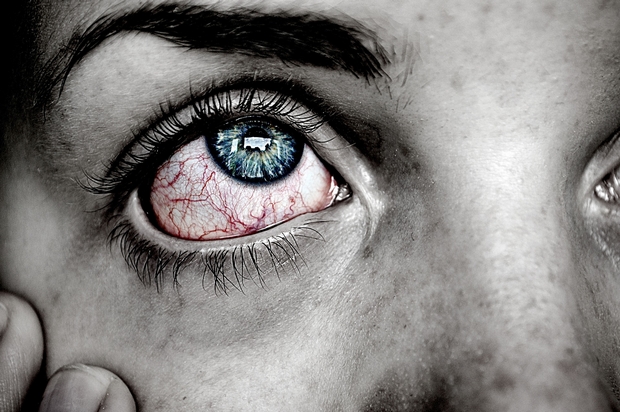CONTACTS CARE: IT’S A RISKY BUSINESS
Cases of eye infections due to contact lenses are increasing despite being easily avoidable! Learn more about the risks and take a look at some contact lens care tips.
A recent report of Jessica Greaney, an 18 year old student being admitted to hospital with Acanthamoeba keratitis has spread across the internet warning of this contact lens parasite. Moorfield Eye Hospital, The BBC reports, have highlighted an increase of this particular eye infection
Acanthamoeba are naturally occurring tiny, one-celled animals called amoeba which can attach to the contact lens. If the parasite infects the eye, this results in Acanthamoeba keratitis, which attacks the cornea and is incredibly difficult to treat. It can sometimes require a corneal transplant surgery - Greaney had to remain awake for a week while doctors attempted to treat the infection with eye drops rather than surgery.
Prevention is therefore vital, making good lens care essential.
Acanthamoeba are commonly found in water, from soil & sewage systems to hot tubs and tap water. Most cases (approximately 90%) of Acanthamoeba keratitis involve contact lens wearers- a simple drop of water could be the cause, which is the suspected source of Greaney’s infection.
Contact lens wearers generally have a higher risk of eye infections as micro-organisms such as bacteria and fungi can stick to the lens, causing an eye infection. Symptoms of a possible infection include irritation, discharge/tearing, swelling, red eyes, pain, blurring and vision loss, and even photophobia (light sensitivity).
Symptoms of Acanthamoeba keratitis are similar, with the additional signs of pain after the removal of your lenses and the feeling that there’s something in your eye. If you experience any of the above, it’s important to seek medical advice - the sooner you are treated, the less likely you are to have permanent damage.

Good lens hygiene, application, and eye care can greatly reduce your risks of an infection and discomfort. To help you keep your eyes healthy and infection free, we have put together a quick guide to contact lens best practices:
Cleaning & Solutions
- Use fresh solution for overnight storage and never re-use or top up the solution- it should always be discarded and replaced with fresh solution
- Clean your storage case with solution and air dry after each use – replace the case monthly
- Always discard solutions & lenses that have passed their expiry date
- Keep a storage case and small bottle of solution with you for emergency use
- Only use the solutions prescribed/specified by your eye care practitioner, don’t switch or mix brands unless advised this is ok
- Don’t decant your solution into smaller containers, this could lead to contamination of the solution
- Only use your solution to wet the lens, water and saliva are not safe alternatives and can risk an eye infection
- Never use water to clean your lenses or their case – water can contain bugs that are harmful and can cause dangerous infections (see above)
Lens Application
- Always wash and dry your hands thoroughly before handling your lenses
- Insert lens before applying make-up and remove them before taking it off
- Avoid contact with your fingernails, both with the lens and your eye
- Don’t mix your left and right lenses – try inserting and removing the same lens first
- Always check the lens is not damaged or inside out before inserting
- Always remove your lenses before sleeping unless instructed otherwise
- Apply hairspray, deodorant or spray cologne/perfume before putting your lenses, make sure the spray has settled before insertion to avoid contaminating the lens
General Good Practice
- Never ignore the warning signs of infection, always seek medical advice
- Avoid contact with water when wearing your lenses, i.e. don’t swim or shower with lenses in
- Seek advice from your eye care practitioner before using eye drops (other than the lubricant drops you’ve been recommended) as they are known to interact with contact lenses
- Avoid wearing your lenses when you have the flu or a cold
- Go for periodic examinations, usually annually, for a check-up and re-evaluation of your lenses
Learn more about the different types of contacts to find which lens is suited to you.

